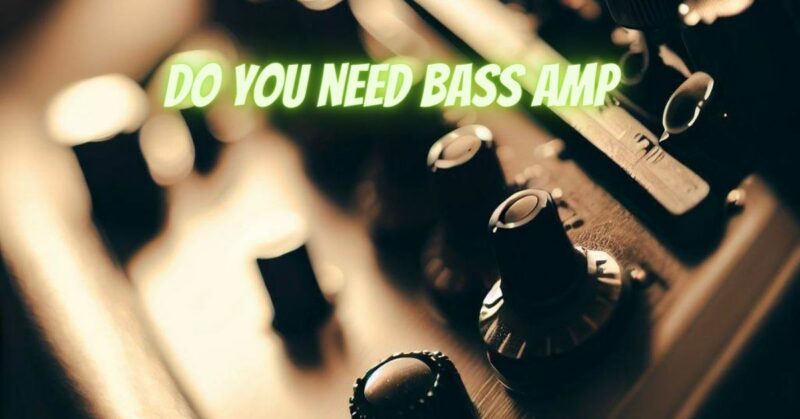For bass players, the quest for the perfect sound is a constant journey. A crucial decision to make is whether investing in a dedicated bass amp is necessary for your playing needs. While it’s a tempting addition to your gear collection, the decision should be based on various factors specific to your playing style, requirements, and aspirations. In this article, we will delve into the considerations that will help you determine if a bass amp is indeed necessary for you.
1. Playing Frequency and Style:
Consider how often you play the bass and the style of music you enjoy. If you’re a committed bass player and regularly perform with others or in bands, a dedicated bass amp becomes essential for crafting your unique sound and ensuring you’re heard clearly in a live setting.
Assessment: Evaluate your commitment to bass playing and how much time you spend performing with others. If you frequently play in bands or jam sessions, a bass amp is likely necessary.
2. Performance Requirements:
Assess the environments where you typically play. If you perform in larger venues, open spaces, or outdoor events, a bass amp is essential to project your sound effectively to the audience.
Assessment: Consider the size and acoustics of the venues you perform in. If you encounter scenarios where you struggle to be heard clearly, a bass amp becomes a valuable tool.
3. Versatility and Tone Control:
Bass amps offer various tonal options, including tone shaping controls, EQ settings, and sometimes built-in effects. If you desire flexibility in sculpting your sound, a bass amp provides the necessary tools.
Assessment: Reflect on whether tone control and versatility are crucial elements in your bass playing. If you enjoy experimenting with different tones and effects, a bass amp can significantly enhance your creative possibilities.
4. Recording and Studio Work:
If you engage in studio recording or home recording projects, a bass amp is instrumental in capturing your bass sound with authenticity and capturing various sonic nuances.
Assessment: If you pursue recording projects or want to create professional-quality bass tracks, a dedicated bass amp is highly recommended for achieving the desired sound in the studio.
5. Volume and Headroom:
Bass amps are designed to handle the low frequencies of the bass guitar, offering ample headroom and power for delivering a robust and full-bodied sound.
Assessment: Consider whether your current setup meets your volume requirements and if you need more headroom and power to ensure a strong and impactful bass presence in your performances.
Determining if a bass amp is necessary for you revolves around your playing frequency, style, performance requirements, desire for tonal control, recording needs, and volume preferences. If you are a committed bass player frequently performing in various settings, a bass amp becomes an essential tool to elevate your playing experience and provide the audience with an unforgettable sonic journey. However, if your bass playing is limited to casual home practice or low-volume jam sessions, other alternatives, such as headphone amps or preamp pedals, may suffice. Assess your needs and aspirations as a bass player, and make an informed decision that aligns with your musical journey and ambitions.


